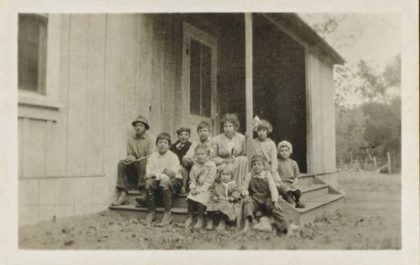Coping with Cancelled Celebrations, Venues, vendors, and the betrothed show resilience and heart.
Celebrations in the next three months have come to a screeching halt after unprecedented CDC recommendations and the Governor restricting gatherings of over nine people, to avoid straining the resources of communities struggling to fight the Coronavirus.
The ripple effect of a cancelled event is widespread, affecting the venue and every vendor from the caterer to the wedding vow coach. The florist, baker, photographer, airline, party rentals, DJ, and valet, all are booked far in advance.
After planning an event—especially a wedding—for months or even years, pulling the plug is an emotionally charged and financially consequential decision. Some hosts go forth with socially-distanced innovations, such as taping the photograph of each wedding guest to what would have been his seat in the pew.
One local bride faced the dilemma of her June wedding date with hope, and concern for extended family travelling from Canada—a country on lockdown until June 30. If she went ahead with the wedding, the younger cousins (who were game to travel despite the pandemic) would arrive to find the restaurants and bars closed. If she rescheduled the wedding until August or September it would still be risky putting the older generation on a plane. And even if restrictions for gatherings had lifted by then, they likely still wouldn’t allow 100 guests.
An immediate hitching at A Little White Chapel in Vegas was an option, either in lieu of or until the big day. But that felt like eclipsing the father of the bride, who wanted to walk his only daughter down the aisle. The anticipated June wedding would be the biggest event of her life. Her family wanted it to be special. “There really was no choice. We wanted family to be there. We would wait.”
The bride and groom along with their family opted to postpone the wedding for one year.
Reversals in events often involve lost deposits, fees, discussions of force majeur (a clause allowing vendors to get out of refunds) and impossibility, mitigation, wedding or event insurance, and other contractual fine print. The pandemic related cancellations in the Santa Monica Mountains, however, seem to be settled with good faith and generous spirits.
“Everybody was fine about transferring deposits to next year,” said the Topanga Canyon bride’s mother. “I know every vendor personally.”
The invitations are printed and ready to go. Having cost $900, each will be modified by hand and used next year. Only a couple of digits in the June date need to be updated—a personalization that will mark concern for family, and record the unique timing of the wedding in history.
A cancellation or postponement during a pandemic is nobody’s fault. But somebody swallows the cost. The good faith efforts of venues and vendors who reschedule and waive fees to keep people safe during the pandemic, costs them. An event venue sells days – and the cancelled dates are gone, sunk costs. The rescheduled events commit future resources from the year’s finite number of days.
After large gatherings were prohibited, Amir Rofougaran of Topanga Canyon’s popular venue The 1909 worked case by case to achieve the best scenario for each of his clients. Most will reschedule, some want full refunds. Others don’t yet know what they want.
The hallmark of Rofougaran’s policy is to ensure that the employees designated for each date are paid, despite cancellations, because “people need to survive.”
Fifteen to twenty workers are involved in each event. Rofougaran’s policy means that The 1909 pays some or all labor costs for cancelled dates, such as the one where the bride and groom (non-essential workers) were both laid off. If government relief should come through for The 1909 (it was approved but not funded), then those funds can fully reimburse clients.
“On the surface it’s a loss, but over time [paying employees] will pay back because the emotional impact on the employees is good,” says Rofougaran. “People working at the venue have much more heart because they’ve not been thrown out.
“It is easier to take care of customers and employees. Nothing is more stressful than being selfish. There will be a day when this is past.”
Rofougaran and his staff use the un-booked time for socially-distanced weekly meetings to improve the venue and review logistics. During the quiet nights, Rofougaran has started woodworking again. Something he’s wanted to do but couldn’t find time before.
“Pray we stay tranquil and loving,” he said. “We all are in it together. We are so linked—on levels we don’t even experience—that’s my belief.”
The Topanga Community Center is “100 percent gates closed—playground, ball field, everything,” according to Dayna Miller, scheduling agent for TCC.
Among the foregone events are Food Truck Fridays, the Fiddler on the Roof youth production, and of course, Topanga Days. The last public event held at TCC was the Flying Pig Supper Club on February 1; and the last private event was a wedding on March 14. All rental and fundraising income is lost.
Still, TCC is there for the community, offering on-line classes and virtual tours, helping coordinate Rocco’s Cucina/Canyon Sages food delivery, and hosting a Blood Drive on May 14 (by appointment only).
“It will come back,” Miller said. “But it won’t look the same in the near future. Maybe instead the usual 450 people at Food Truck Friday, there’ll be 200 mask-wearing, socially-distanced people spread over the field.”
This year more than ever, the TCC will need the support of the community through donations and membership.
Flexible event vendors are finding new growth avenues during the crisis that will change the way they do business in the “new normal”, when restrictions on gatherings are loosened.
The Lunches with Love school program comprised the majority of business for Rocco’s Cucina in the Palisades. That revenue stream dried up in one day when schools closed. Walk-in trade at the restaurant also slowed as people were Safer at Home. Restaurateurs Jed Levy and Kristina Rocco Levy applied for but were (for now) shut out of the SBA relief program.
A generous family member contributed financially, concerned that if the business closed doors now it would be doubly hard to later reopen. So, find somebody to feed.
Shifting gears fast, Rocco-Levy’s initial plan was to bring dinners to ER doctors in the hospitals. However, one evening on her way home from work, an elderly Topanga Canyon resident mistakenly telephoned Rocco-Levy, thinking she was dialing Meals on Wheels. The woman shared her worries about leaving the house and about having enough food. Rocco-Levy promised, “I’ll bring food tomorrow.”
Seeing a need to fill, the next day she cooked and distributed 35 lasagne dinners. Rocco’s Cucina now delivers 70 dinners on Mondays, Wednesdays, and Fridays to at-risk individuals—mainly seniors—whether or not they can afford it or not, thus kicking off her collaboration with the Canyon Sages. Volunteer drivers—masked, gloved and but smiling under their masks—are coordinated through Topanga Community Center CARES.
“Everybody is willing to step in,” Rocco-Levy said. She is keeping employees busy (though with fewer hours than before), and is supported by a broad network of grateful clients and donors. Oh, and the ER doctors at Santa Monica’s St. John’s and UCLA hospitals also receive 60 dinners weekly.
“It feels really good to be part of the solution,” she said. “And the seniors feel so much healthier when eating three times a week.”
Rocco’s Cucina’s business model unfolded organically and from the heart, as a result of the Covid19 crisis. It could not have been planned. The restaurant hasn’t had an easy past fifteen years. Adapting to this horrible crisis may have provided the avenue for future growth.
“The world tilted on its axis—and you’ve got to spin with it, You cannot be rigid,” says Rocco-Levy. “We won’t go back to business as usual. This is so much more satisfying – the shared experience of it—the gratitude. I have no idea how it will turn out, but we want to keep on working with seniors. They’re going to need it. They’re cautious about coming out of the house.”
Last week, Governor Newsom unveiled a plan for restaurants to feed the seniors, five weeks after Rocco’s Cucina pioneered that solution.
For Sandy Radicevic, president of the west side’s Premiere Party Rents, 60 percent of her work is weddings. 40 percent is business accounts. Almost all weddings have been postponed. First the March/April weddings, rescheduled to summer and fall. Then Stay-at-Home orders were extended, and the May/June and summer weddings were postponed until 2021.
As of April, most all the 2020 dates are gone, and compensation for work already invested in those dates is also gone or shifted for a year down the road. Premier Rentals generates CAD layouts for large events, sometimes ten versions per client, and office staff spends hours in appointments and showroom walk-throughs.
Assuming gatherings resume in 2021, Radicevic foresees a glut of events jamming next year’s calendar, to accommodate the bumped weddings. A doubling of events will be scheduled on weekends, and there will be an increase of weekday bookings, especially on Fridays.
Recouping 2020 losses by double- or triple-booking dates in 2021 will throw up its own challenges. An established outfitter like Premier Rents has the inventory to service multiple events on popular dates; though labor and trucking logistics could be a restraint. But a sole photographer can’t be two places at once, at magic hour when the light is perfect — nor a bartender, or a photo booth vendor.
But for now, all is on hold, waiting to see what happens and how to adapt to the new normal.
“The hospitality industry needs guidelines so we can safely get back to work.” Radicevic said.
In the meantime at Premiere Rents, clients are attended to remotely, and staff is furloughed until Stay-at-Home is lifted. The company has secured a place in the government relief queue, and is waiting.
“We’re all in this together. We’ll come out together on the other side. I haven’t had one client who was upset or hostile,” Radicevic said.. “Everybody is happy to be alive and safe with family. This is a bump in the road—and we’re all working to lock in new dates for next year.”
Dearly Beloved, We are NOT Gathered Together…




